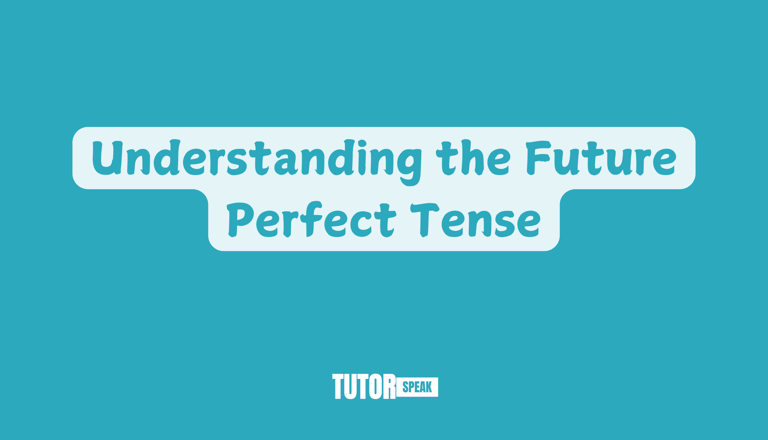Understanding the Future Perfect Tense
The future perfect tense is used to describe an action that will have been completed before a specific point in the future. It focuses on the completion of the action, not the process.
TutorSpeak
12/8/20242 min read


Understanding the Future Perfect Tense
The future perfect tense is used to describe an action that will have been completed before a specific point in the future. It focuses on the completion of the action, not the process.
1. Structure of the Future Perfect Tense
The future perfect tense is formed using:
will + have + past participle
Formula:
Subject + will + have + past participle
Affirmative:
I will have finished my homework by 8 PM.
She will have graduated by next year.
Negative:
Subject + will + not + have + past participle
I will not (won’t) have completed the project by tomorrow.
They won’t have left the city before we arrive.
Question:
Will + subject + have + past participle?
Will you have read the book by next week?
Will she have arrived before the meeting starts?
2. When to Use the Future Perfect Tense
The future perfect tense is used to describe:
a) Actions completed before a specific time in the future
Example:
By 10 AM tomorrow, I will have submitted the report.
(The action of submitting the report will be completed before 10 AM.)
b) Actions completed before another future event
Example:
She will have cooked dinner by the time they arrive.
(The action of cooking will be completed before they arrive.)
c) Predicting completed actions in the future
Example:
He will have learned to drive by next year.
(This expresses a prediction about the completion of learning to drive.)
3. Time Expressions Commonly Used with the Future Perfect Tense
By (a specific time):
I will have finished my work by 5 PM.
By the time (another action happens):
They will have eaten by the time the movie starts.
In (time period):
She will have written her book in two years.
4. Examples of the Future Perfect Tense
Affirmative:
I will have cleaned the house by noon.
He will have started his new job by next month.
They will have built the new bridge by next year.
Negative:
I won’t have completed the task by the deadline.
She won’t have saved enough money to buy a car.
Questions:
Will you have finished the project by tomorrow?
Will they have arrived before the show starts?
5. Practice Exercises
Exercise 1: Fill in the blanks with the correct form of the future perfect tense.
By the time you arrive, I ________ (cook) dinner.
She ________ (not finish) her homework by 10 PM.
They ________ (build) the new school by next year.
Will he ________ (learn) French before he moves to Paris?
We ________ (clean) the house before the guests arrive.
Exercise 2: Rewrite the sentences using the future perfect tense.
He will submit the report at 4 PM.
They will complete the bridge by 2025.
I will read the book by the end of the week.
The plane will land at 10 PM.
She will graduate from university next year.
Exercise 3: Write a sentence with the future perfect tense.
(You, finish, project, by next week?)
(She, write, a book, in two years)
(We, clean, house, before guests arrive)
(They, not complete, their task, by noon)
(He, learn, to drive, before his birthday)



